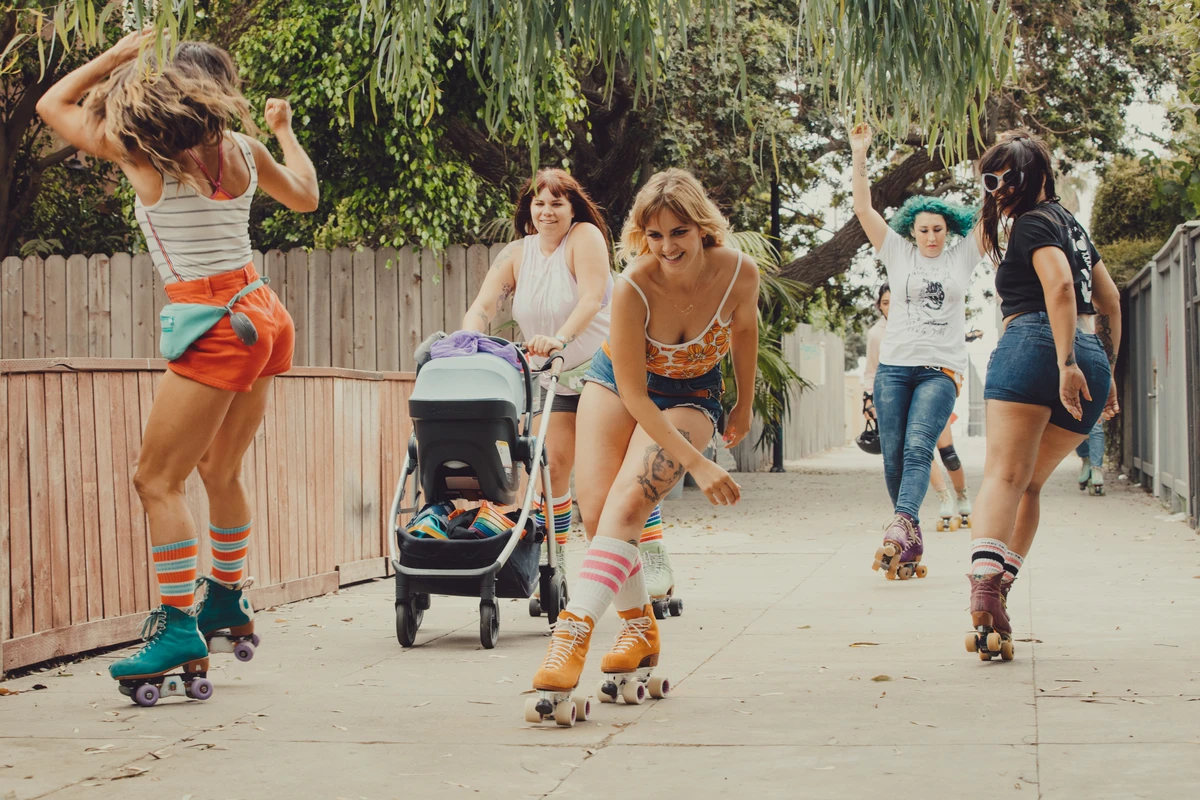The Moxi roller skating girl gang
The Moxi Skate Girls are the tight knit community that has grown out of Moxi Skates, a roller skate company based in Long Beach. The company was founded in 2008 by Michelle Steilen—known from her roller derby days as as Estro Jen and sells retro-style outdoor roller skates through the legacy manufacturer Riedell Shoes Inc. They’re incredibly popular, selling 10,000 pairs in 2018 alone. Their brightly colored skates are currently sold at Urban Outfitters, Bando, Dolls Kill, and roughly 200 roller rinks and skate shops worldwide. Though Steilen grew up roller skating, her dedication to the sport began in earnest when she moved to Los Angeles and began skating with the LA Derby Dolls. But she yearned to make skating more accessible and figured that selling high quality, lifestyle oriented skates designed to perform recreationally—rather than the drab tan and black, rentable indoor models—was the right place to start. “I wanted anyone to be able to skate,” Steilen says, pivoting backwards onto her toe stops in order to face me. “And I wanted to build a roller skating community.”

All of the skates are named after Steilen’s family members. The “Jack” after her little brother, and the “Beach Bunny” model is an ode to her pet rabbits, Nimbus and Cloudia. But Moxi’s most prominent skate is the high top “Lolly,” named after Steilen’s sister Loren. They’re manufactured by hand in Red Wing, Minnesota, where each skate hits 85 stations in the factory before being packaged into a box. As a result, each element is crafted with obsessive attention to detail, from the suede boots to the thrust and foot plates. The final look is one part 1920s retro and one part 1980s brightly colored fever dream—an homage to the golden age of roller rinks in Los Angeles, and a perfect fit for Instagram where they’re coveted by thousands of followers.
In these Instagram photos, women wear the same Moxi Skate Girl uniform: Daisy dukes (or Hammies, as they’re called on the Moxi website), a stretchy tank top to accommodate serious movement, matching Moxi fanny packs, and colorful tube socks. The outfit makes them stand out regardless of the venue—be it boardwalk, skate park, stairwell, or during a hill-bomb. Their look announces their existence, as if to say this is ours in spaces that have historically been dominated by men. This bravado gave the company its name. “My UPS guy told us we got a lot of moxie,” Steilen said, “and I liked how that sounded.”
So much of Moxi’s aesthetic comes directly from Steilen herself. On and off skates, she is a force of nature, matching exhilarating strength with delicate footwork. She wears these contradictions beautifully. Mid-skate, Steilen transitions from a set of graceful one foot turns, executed by balancing on her right toe stop, to a split-leg handstand. She embellishes an electric slide type of repeated footwork with spins and kicks. She falls once, gets up, examines her already forming bruise, and rolls on. When I ask why we haven’t seen more of the Moxi Skate Team on television or in documentaries, she says simply, “The Moxi Skate Team—they can’t contain it and sell it.”